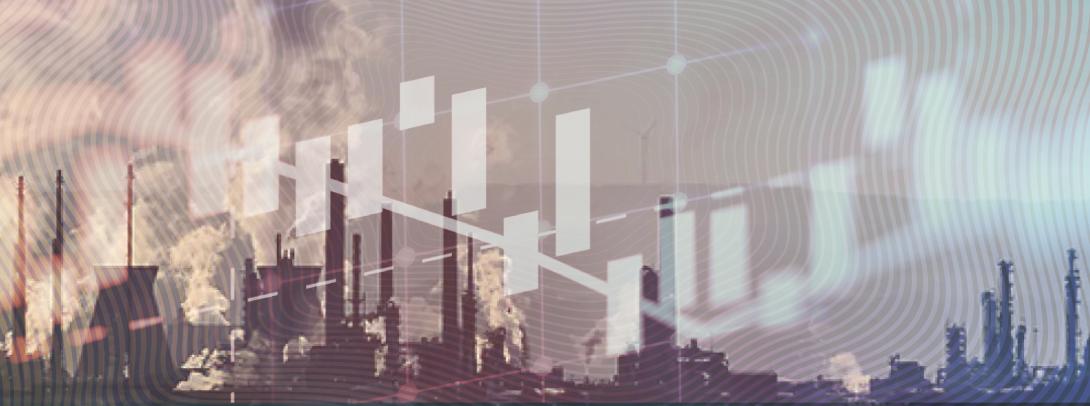As countries around the world grapple with how to address climate change, one of the most vital and complex issues that leaders must contend with is how to assess the economic and financial risks posed by a warming globe. NYU Shanghai’s Volatility Institute brought together some of the world’s foremost leaders on the subject along with some 200 attendees for its seventh annual conference on Nov. 19.
Held as a day-long webinar, this year’s conference featured three morning keynotes that explored the conference theme of “Climate Risk-Modeling, Financial and Economic Impacts, and Responses.” As more countries initiate economic policies to fight climate change, Volatility Institute Co-director Wang Jianye said it is vital that national leaders, particularly in the US and China, cooperate and collaborate.
“Climate risk knows no national border,” Wang said. “Our two countries have a responsibility to work together on these issues.”
The day’s first keynote speaker was Andrew W. Lo, the Charles E. and Susan T. Harris Professor at the MIT Sloan School of Management. Lo offered an in-depth explanation of his original mathematical framework for quantifying the financial impact of impact investing, helping investors to calculate the potential positive or negative effect of their investments. As more companies look to invest in environmental, social and corporate governance (ESG)-related causes or to divest from fossil fuel companies and others engaged in harmful practices, it is vital that fund managers understand the impact of their climate change investments in order to protect their fiduciary responsibilities to clients.
“Finance doesn’t have to be a zero-sum game if we choose wisely,” Lo said. “And I believe we can actually do well by doing good if we do it in the right framework and provide the right kind of communication to investors.”
Following Lo’s remarks, Johannes Stroebel, the David S. Loeb Professor of Finance and the Boxer Faculty Fellow at the NYU Stern School of Business, presented his research on the connections between climate change and financial markets. The goal, Stroebel said, is to use existing and innovative financial tools to hedge financial risks caused by climate change and reduce the economic stress they could cause.
One strategy Stroebel discussed was the use of language processing programs to analyze global newspaper climate change coverage and its market impact. The hope, Stroebel said, is to craft an investment portfolio that “outperforms upon the realization of bad news about the climate.” By properly gathering and utilizing this information, the financial risk can rest with those most capable of bearing it, he said.
Robert Engle, the 2003 Nobel Laureate in Economics and co-director of the Volatility Institute, gave the final keynote, discussing the emissions pledges countries made at the recent UN climate change conference and the economic impact of carbon neutrality.
In order for countries to reach carbon neutrality, Engle said that the private sector must take the same steps as the public. Compliance with new emissions standards must be mandatory now, he said, and companies should bear heavy fines if they fail to meet the new benchmarks.
Such an approach is the most effective path to greening a nation’s economy. If governments fail to act swiftly to implement these new measures, Engle said it is up to investors to seek portfolios that appreciate when there is climate news, and to invest in companies that are prepared for climate change.
Attendees next had the chance to hear from leading economists about the implications of carbon neutrality on the wider economy. Panelists included Wang Jianye, Managing Director of the China International Capital Corporation Global Institute Dr. Yang Zhao, and Jason Huang Jiansheng, general manager of the Quantitative Investment Department of E Fund. Executive Director of NYU Shanghai’s Volatility Institute Zhou Xin served as the moderator.
Wang spoke about the challenges and risks China faces under the Paris Agreement. He first shared the data regarding China’s investment and financing in the Belt & Road countries, which showed that two-thirds of the country’s investment from 2013 to 2020 went toward fossil fuel powered energy and infrastructure projects. And looking at domestic projects, the amount of newly approved coal-fired power plants in China last year equaled 76 percent of the world’s total in 2020. China is still the world’s largest emitter of CO2. From the Paris Agreement to the Glasgow Climate Summit, major economies have committed to keeping carbon emissions under control. This September, President Xi Jinping said China will stop building coal-fired power plants overseas. The policy changes require a shift to clean energy.
During the conference luncheon, Fan Zhengwei, assistant president and general manager of the Intelligent Manufacturing Investment Department at E Fund, outlined new investment opportunities opened by policies combatting climate change in a talk entitled “Prospects of Energy Storage Industry Under Background of Carbon Neutrality.”
The afternoon’s sessions featured paper presentations from eight experts working at the intersection of financial risk assessment and climate change. The first panel presented four papers on climate risk and asset pricing, while the second showcased their original research into climate risk and related policies.


